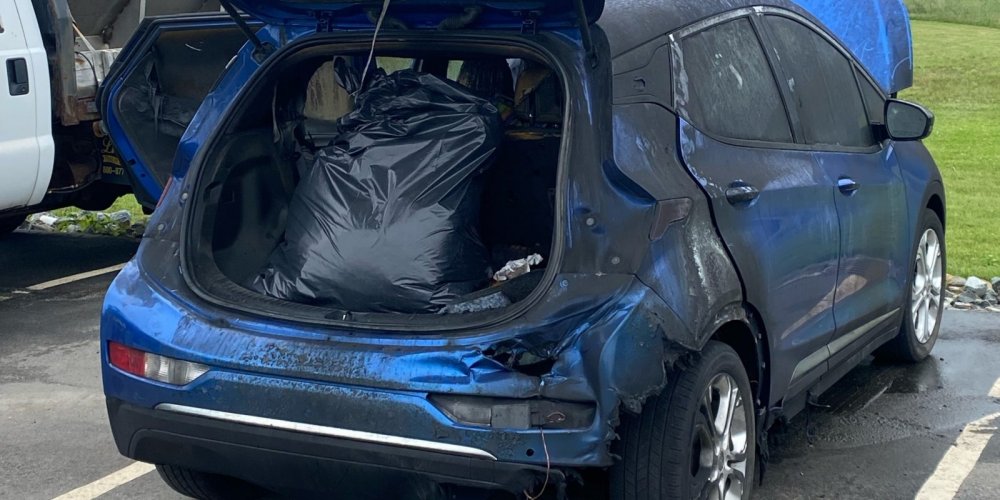Other Pages
- Opinion Poll
- About Us
- Send Your Story
- Contact Us
- Newsletter
- Privacy Policy
- Terms and Conditions

General Motors (GM) has on Tuesday informed some Chevy Bolt EV owners that it will replace all the modules in their batteries with new ones to reduce fire risk.
The company’s latest effort is expected to address issues in some Bolt EV models that make their batteries more likely to catch fire.
In an effort to reduce the fire accident "out of an abundance of caution", GM has recalled the Bolt EV twice in a little over a year before this and after over a dozen incidents wherein the vehicle went up in flames due to battery-related issues as the publication stated.
GM recalled over 68,000 Bolt EVs back in November and rolled out a firmware update to limit their charging capacity to 90 percent. In July, the National Highway Traffic Administration issued a safety alert July advising owners of 2017 to 2019 Chevrolet Bolt EVs not to park their cars indoors or leave them charging overnight. That warning came after two Bolt EVs caught fire in the US. Finally, in April, the automaker released what's supposed to be the final software fix for the issue. Clearly, that wasn't able to completely solve the problem, and GM had to find another solution.
According to Electrek, GM has informed some owners that they'll be able to start booking appointments to have all the modules in their batteries replaced starting on August 23rd. Owners who go through with the replacement will also get a new 8-year 100,000-mile warranty.
Chevrolet said it will only replace battery modules in Bolts produced within the time frame GM suspects battery manufacturing defects were present. Based on the vehicles that caught fire, Electrek says GM will likely prioritise 2019 models followed by 2017 and 2018 models. The company will also replace modules for owners who routinely do deep discharges.
GM and LG intends to examine the replaced modules, find their defect and also try to figure out if they can devise an in-situ detection method that would allow owners to figure out if their batteries are at risk of catching fire.
0 Comment(s)